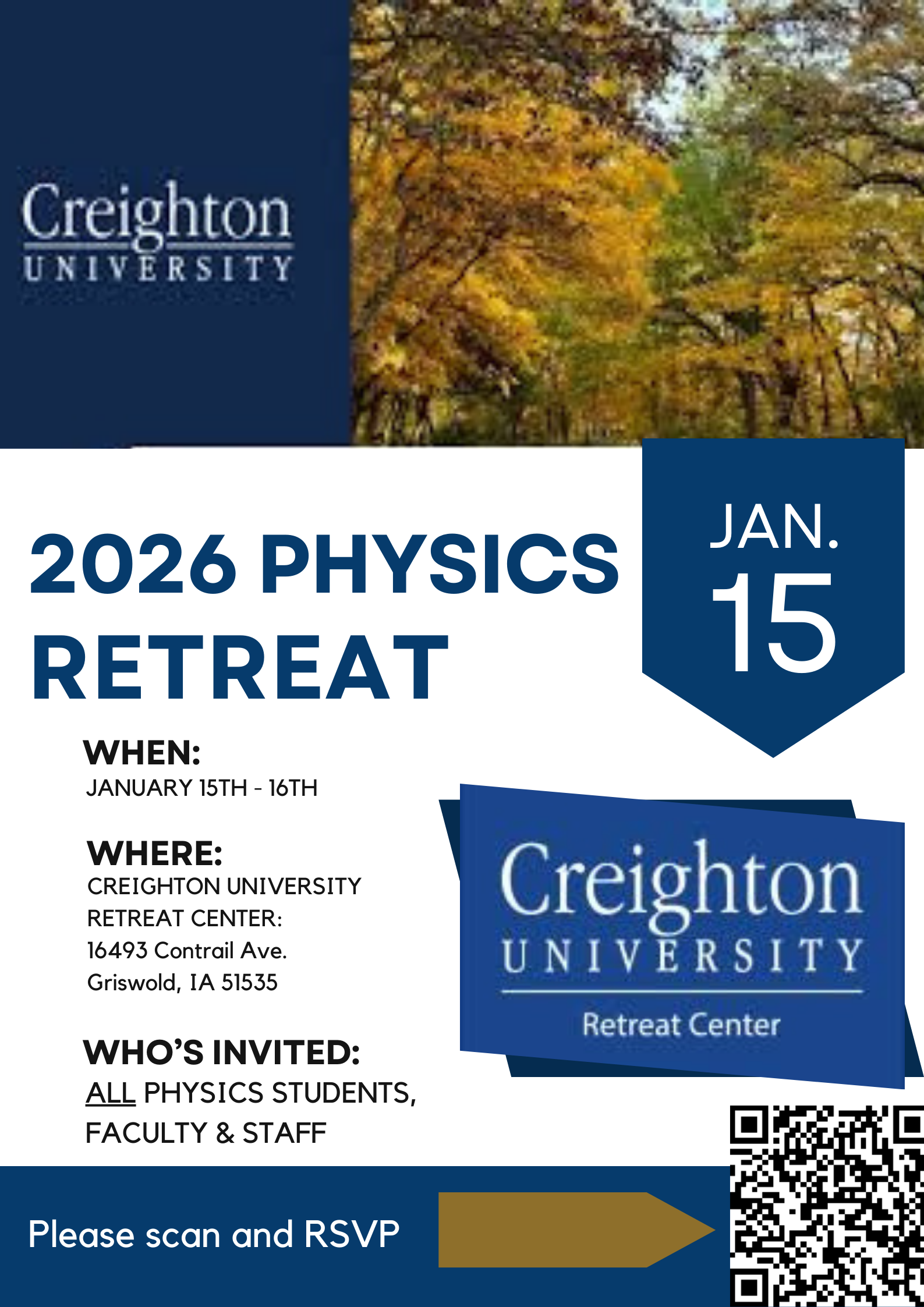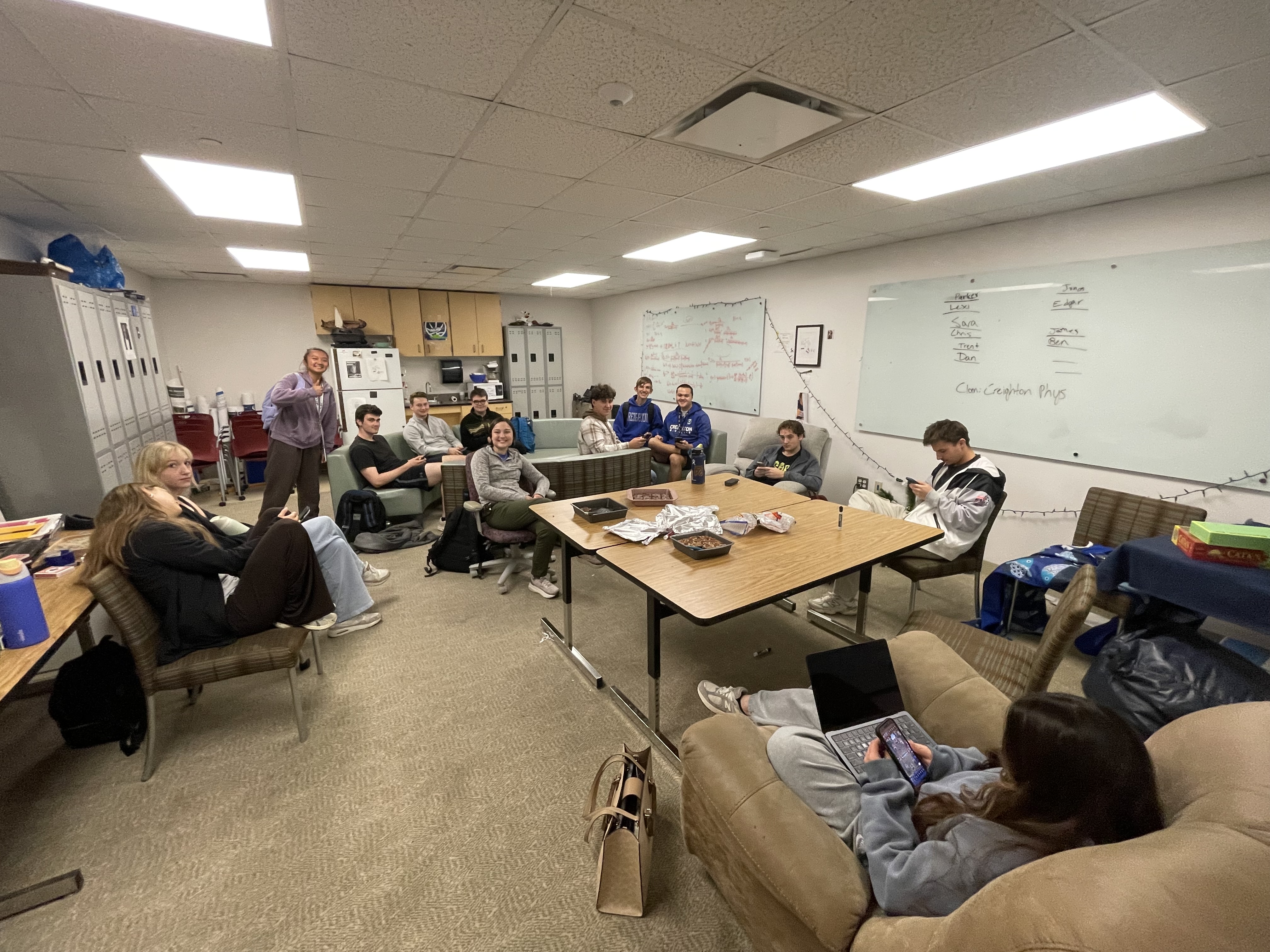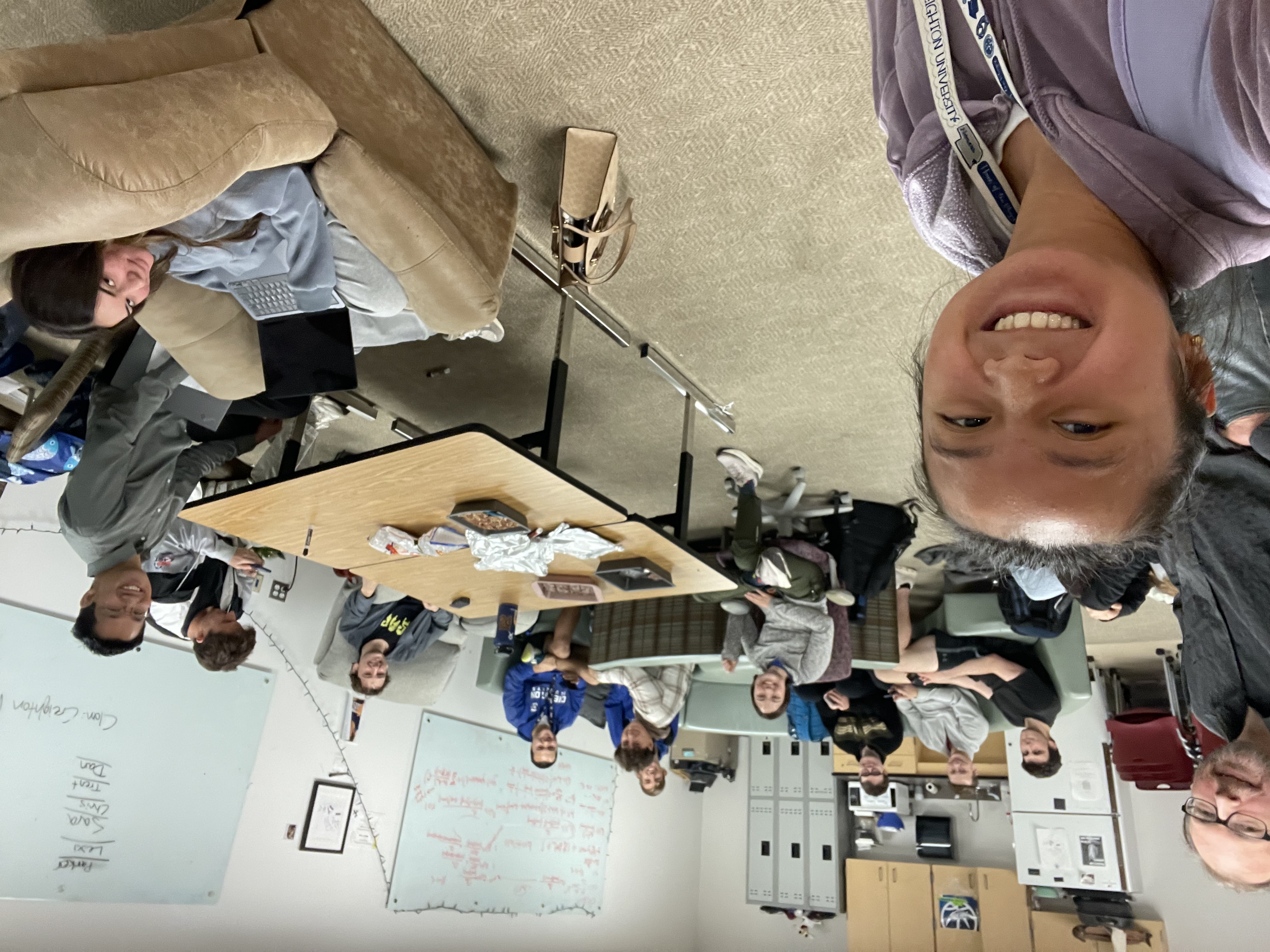Physics Department Seminar 03-05-2010
Development of fluorescent nuclear track detector technology for mixed radiation field dosimetry
Jeff Sykora
Landauer Inc.
Oklahoma State University, Department of Physics
Experiences in a Ph.D. program in physics are one of a kind, focused on but not limited to science. I will talk about my recent adventures transitioning from an undergraduate at Creighton to finishing Ph.D. work at Oklahoma State University. I will also discuss my research summarized below.




